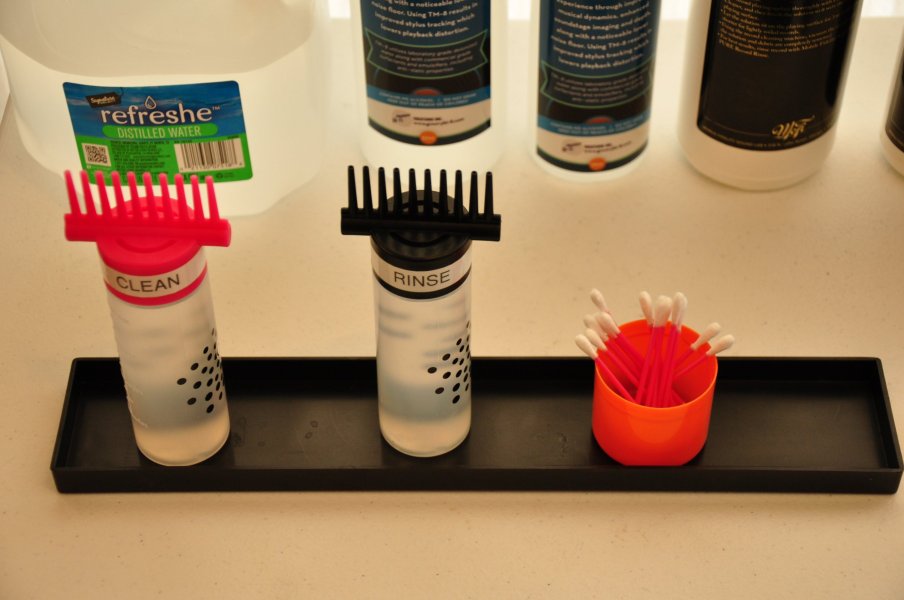Would like to know what would be the least disruptive wetting agent to use and a good mixture ratio with distilled water?
I am just about done putting my vintage Keith Monks Gemini (dual platter) RCM back together after completely modding/upgrading it.
I've had it for a few decades and fought with keeping the final rinse water on the record... instead, it would mostly fling off, not adhering to the record.
To help with this, and to make the machine operate better I decided to slow the thing down by half!
Originally, the platter speed was 100RPM, now both platters spin at approximately 55RPM.
I replaced both the arm wand motor and the thread spooler motors (originals were 1RPM) with 1/2RPM Heavy Duty industrial motors... they will surely outlast me.. in fact, the original 1970's motors are still working!
The results should produce a much more controlled RCM.
The original time it took for the arm wand to go from the label to the outer rim of a record was around 60 seconds.
Now it will take double that time at 2 minutes, but much more controlled... 100RPM was just too fast for a platter speed.
I also replaced/upgraded the vacuum pump with a new modern KNF brand, same as the newer top of the line Keith Monk RCMs use.
And, as a final touch... I added a vacuum gauge.
Between the Keith Monks machine and the Degritter I purchased a few months ago, these should make a great combination.
Rick
I am just about done putting my vintage Keith Monks Gemini (dual platter) RCM back together after completely modding/upgrading it.
I've had it for a few decades and fought with keeping the final rinse water on the record... instead, it would mostly fling off, not adhering to the record.
To help with this, and to make the machine operate better I decided to slow the thing down by half!
Originally, the platter speed was 100RPM, now both platters spin at approximately 55RPM.
I replaced both the arm wand motor and the thread spooler motors (originals were 1RPM) with 1/2RPM Heavy Duty industrial motors... they will surely outlast me.. in fact, the original 1970's motors are still working!
The results should produce a much more controlled RCM.
The original time it took for the arm wand to go from the label to the outer rim of a record was around 60 seconds.
Now it will take double that time at 2 minutes, but much more controlled... 100RPM was just too fast for a platter speed.
I also replaced/upgraded the vacuum pump with a new modern KNF brand, same as the newer top of the line Keith Monk RCMs use.
And, as a final touch... I added a vacuum gauge.
Between the Keith Monks machine and the Degritter I purchased a few months ago, these should make a great combination.
Rick
Last edited:





